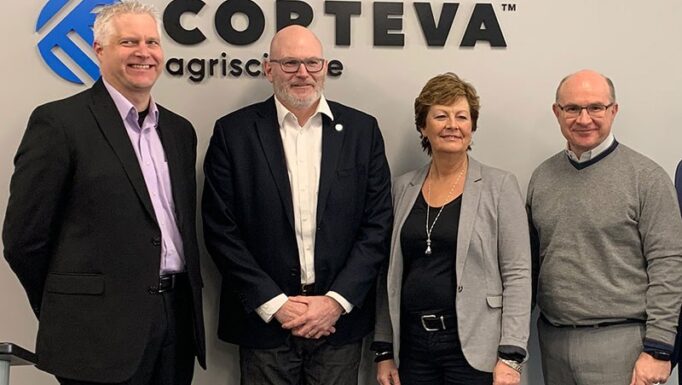Improving protein in Canadian canola

Create
Consortia Contribution
$11,680,108
Cluster Contribution
$13,039,781
Corteva
Botaneco
Bunge
 Goal
Goal
Create a long-term, step-change improvement in protein content in the Canadian canola crop. Open new, higher value markets and create economic benefits across the entire value-chain.
 Project Summary
Project Summary
This project is designed to create a long-term, step-change improvement in protein content in the Canadian canola crop, by producing canola seed that is high in protein and lower in fibre, and creating new opportunities for canola meal. Corteva will drive this by making canola hybrids that produce high protein oilseeds for downstream use. High protein products delivered from breeding will be scaled up to provide seeds for processing by Bunge and Botaneco to generate meal and high value canola protein products, that are more competitive with other plant-based protein sources for human and monogastric markets, including poultry and pork. This will open new, higher value markets and create economic benefits across the entire value-chain.
 Results and Impact
Results and Impact
- Built the scientific and technical foundation need for to Corteva to successfully make and deliver ProPound Meal hybrids with competitive yield, agronomics and oil content.
- Generated six intellectual property filings.
- Shared information, success and challenges with the plant-based food and ingredients ecosystem through Protein Industries Canada-facilitated webinars and events.
- Collaborated with the University of Manitoba, National Research Council of Canada, and Canadian Grain commission to build productive, strong relationships.
- Increased in number of employees, including co-op students.
- Increased percentages of Botaneco employee diversity with: 46 per cent who identify as women, 43 per cent visible minorities, and 46 per cent immigrants to Canada.
- Expected eventual replacement of most of US soybean meal, resulting in reduced green house gas emissions from transportation.
- Not all feed studies were completed by the end of this project’s timeline.

